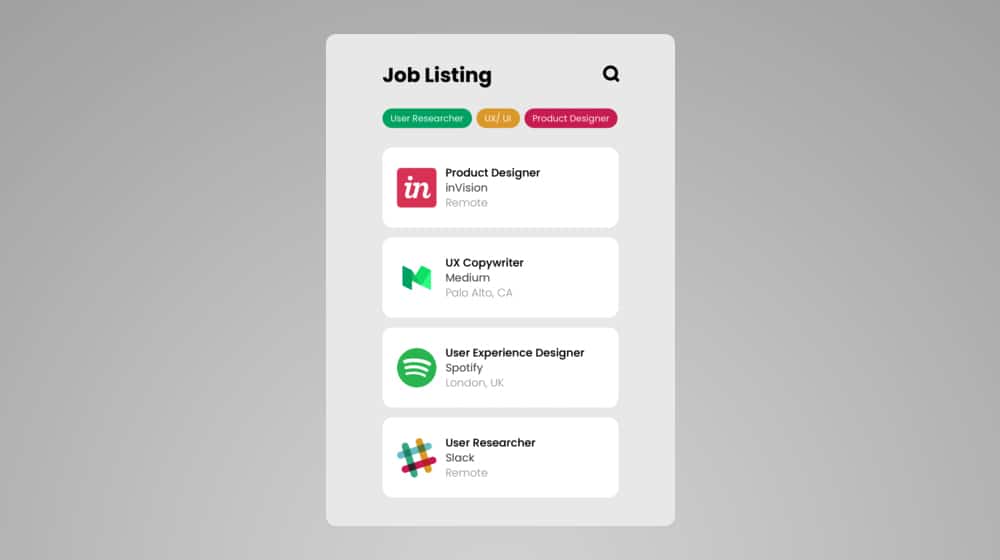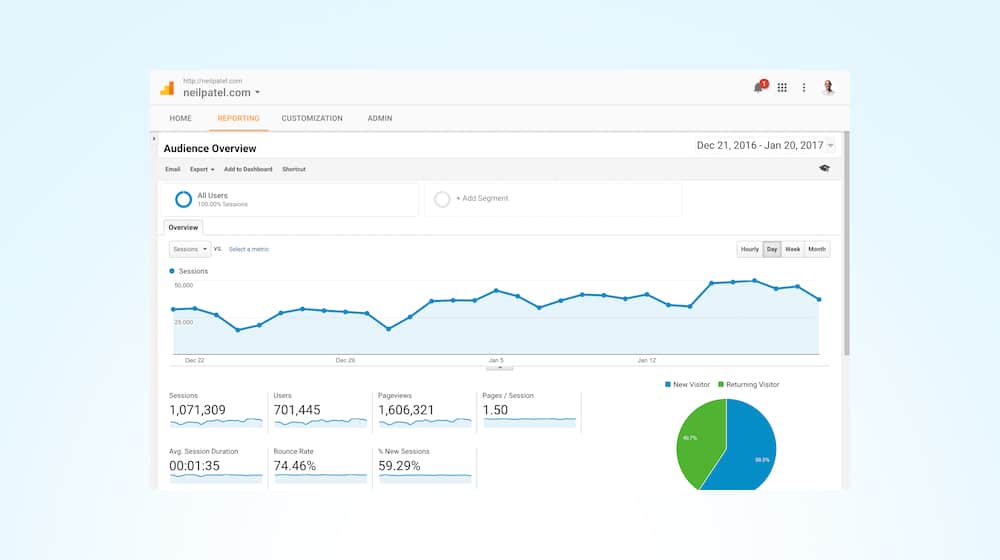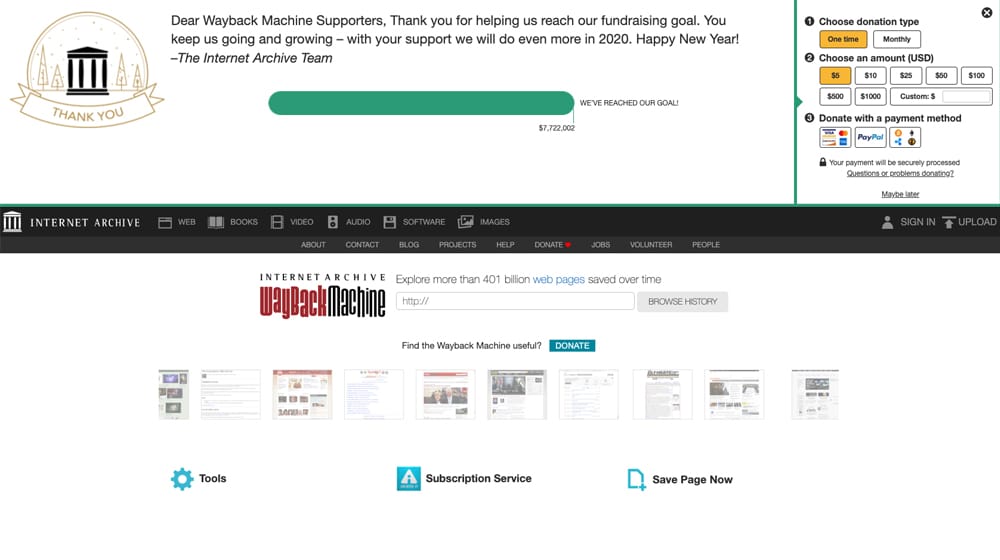What is The Role and Job Description of a Blog Manager?

As a business owner, you've definitely heard the advice that your business needs a blog to succeed online. You've probably also looked up information on how to start and run a successful blog.
Overwhelmed? I wouldn't be surprised.
Running a blog is easy, but running a successful blog is a full time job:
- You have to learn enough about web design and coding to set up a blog, even if that's made simple with WordPress.
- You have to learn about plugins to get the additional features necessary to make a blog a success.
- You have to learn enough about blog analysis to be able to look at competitor blogs and identify both their strengths and weaknesses, so you know how to fill a niche they aren't occupying, or how to usurp a niche from them.
- You have to learn how to use those features, which means learning the basics of SEO, of content marketing, of editorial calendar tracking, and on and on.
- You have to learn about keyword research, to identify topics and create the basic framework for good content on the web. This means familiarizing yourself with tools that help.
- You have to learn about modern web writing, and how to put together a top-tier blog post that can rank well in the search engines, attract new visitors, and push them down your sales funnel.
- You have to learn about all of the meta data and best practices that go into publishing content on the web, from meta snippets to structured data, and put any of them into use that you deem relevant.
That's all just to run a blog. You have to spend the time doing the actual writing. You have to spend the time managing your site and keeping the infrastructure up to date. You have to spend time monitoring, moderating, and engaging with comments. Sometimes, it seems like the blog manager's job is never done.
 30 Second Summary
30 Second Summary
You need to hire a blog manager to save your time and grow your business online. You can choose to hire a single expert who does everything, build a team of specialists or work with an agency. When looking for a blog manager, you'll want to post job listings on your website, major job boards and industry sites. During interviews, you'll need to check their industry knowledge, marketing skills, past work samples and tools they use. You should also make sure they understand your goals and can track the right performance metrics.
What's The Solution?
While you can do all of the above yourself, you're a business owner. You have better things to be doing. Depending on the scale of your organization, you might be better off spending your time making friends in high places, developing relationships, or making sales calls yourself. You might want to spend your time developing new products, or hiring new employees, or dealing with company finances. There's a ton on your plate already, without adding a blog to it.
The solution is, of course, to hire someone to do it all for you.
There are three ways you can do this.

The first method is the most time consuming, but often the least expensive. You hire individuals, or contract them on a freelance basis. You hire:
- A blog manager who is capable of performing the technical tasks necessary to run a site, like keyword research, topic ideation, meta data optimization, and publication of content.
- A writer (or several) who is experienced with web writing and can take a topic created by your blog manager and turn it into a great piece of content. These can be as cheap or as expensive as you can get away with, anywhere from content mills to high-profile freelancers.
- A graphic designer, photographer, or other image specialist to create images to go along with the content of your blog posts. This can be replaced by a subscription to a stock photo site, though that can be just as if not more expensive.
In some cases, you might be able to hire one singular blog manager who can do all of the above themselves. They'll be on the expensive end of blog managers, but they'll likely be cheaper than hiring three different people. Alternatively, you can take the role of the blog manager, and outsource the writing and imagery to specialists. That's the most time-consuming option, but also the least expensive short of doing everything yourself.

The second method you have is to hire a do-it-all management agency. These blog managers may be individuals or small teams, but they can do everything related to your blog for you. All you need to do is work with them to get set up and start generating content, and once they're approved, they can run with it for as long as you need them to.
The third method is, of course, a larger agency. These tend to have high skilled writers, designers, and other team members in their employ, and they manage numerous websites at any given time. They'll probably be the most effective – though not always – but they'll be the most expensive option, often charging tens or hundreds of thousands of dollars.

So which option should you pick?
The answer lies in your heart. You'll need to decide how much you're willing to let outside professionals touch your business, and how much you're willing to pay. At the same time, you need to figure out how much your time is worth, how much time you're spending on your blog, and how much else you can be doing if you offload your blog to someone else.
Savvy readers might note that in the title of this post, I mentioned hiring a blog manager. Indeed, I prefer to recommend that people hire either one manager to do everything, or a blog manager, writer, and graphic designer that can work as a team.
Putting Together a Job Description
Before you can hire a blog manager, you need to figure out how to find them. Many agencies exist out there, waiting for you to come to them, and that's certainly an option. Alternatively, you can write a job listing and post it.

Where should you post a listing? Several places.
- Your website. A job posting on your website will attract people already interested in your brand, and may hook people who are very invested in your success.
- Craigslist. Go to your city and to high-population cities like New York and L.A., and post your job listing. Even if your blog manager position is remote, a lot of freelancers check these locations for online jobs, because businesses post to them, because of the high population. It's a feedback loop you can exploit for high visibility.
- Job boards. Sites like Indeed, Monster, AngelList, LinkedIn, and GlassDoor are all good places to post jobs. They have high levels of visibility and can get a lot of applicants in your candidate pool.
- Niche boards. There exist blogger-based job boards like ProBlogger, as well as industry-specific job boards where you can find people more likely to know what they're doing.
If you just want a few examples of templates, here:
- A sample blogger job description on Job Hero
- A sample template for a blogger job from Betterteam
- An example of a WordPress manager listing on Blog Ingenuity (archived link)
- A template version of a blog manager listing from TalentLyft
As well as looking at existing listings on job posting sites. Indeed is good for this, as is ProBlogger's job board, linked above.
Interviewing a Blog Manager
A blog is a huge part of your company's public face. As such, you need to have absolute confidence that the people running your blog are good at what they do. If they produce sub-par content, if they steal content, if they don't do anything above the most basic content, or if they're bad at all the non-writing aspects of blog management, they're doing you no good.
As such, it's a good idea to put together an interview for any potential blog manager you want to hire. Here are a series of questions you can consider asking, both yourself and the potential hire, and why.

Does the blog manager do everything, do they need a team to work with, or do they have a team to work with? You want to know this up-front so you know if you're going to have to hire or contract other people to work with the blog manager. This means you'll need to have a more active hand in recruiting.
If the blog manager has their own team – or is a small agency themselves – it takes a lot of the work out of your hands. On the other hand, it also removes some level of control. They'll filter your requests to their team, and you can just guide them as a whole. If they work well together, it's like hiring a well-oiled machine. If they don't, it can be a trainwreck with no accountability.
If you have to manage hiring other people as well, you need to make sure your whole team can work together effectively. This can be a lot of management work as well, but at least it's less work than managing your entire blog alone.
Does the blog manager know your purpose in blogging, and how to achieve that purpose? Sure, the general goal of a blog is to raise awareness and to make money, but you want to have more tangible goals, both short term and long term, that you can point o and use as benchmarks. Are you looking to grow your mailing list? Do you want to achieve certain traffic milestones? Do you want to get a mention in a certain industry list or publication? Do you want to create specific partnerships that you can only forge when you have an effective blog? Do you have specific conversion milestones you want to reach?
These are all questions you need to ask yourself first and foremost. Once you know the answers, you can then try to find a blog manager who knows not just that those are the right kind of goals for a blog, but how to achieve them.
Does the blog manager know the ins and outs of your industry? I'm going to be honest here; a lot of industries are pretty transparent. A talented blog manager can learn the details over the course of a few weeks or months, gain experience, and be more or less an expert well within a year. Food, fashion, retail; these are common and simple enough that the knowledge is more or less interchangeable.

On the other hand, some industries have very specific knowledge where an established expert is the better option. Finance, medical and health, cannabis, cryptocurrencies, and other such industries either have specific kinds of details, specific kinds of knowledge, or governmental (and search engine imposed) regulations that your blog manager must be aware of.
That's not to say this information can't be trained, and if you want to spend the time with overview and management to train someone who is otherwise promising, that can be very effective. On the other hand, if you want to be more hands-off, hiring someone with the knowledge already is a better idea.
Will the blog manager handle other parts of your sales funnel? If so, do they have the experience to do so effectively? There's more to your blog than just your blog, you know? Your blog is part of your overall marketing. That means it needs to be in tune with things like seasonal sales and events. It needs to work smoothly in conjunction with other marketing efforts as well, like your newsletter or your social media.
So this is another question you have to ask yourself; is your blog manager going to handle other forms of marketing, like your landing pages, your social media profiles, and your email newsletter? If not, do you handle those, do you have someone else working on them, or do you need to hire someone else to handle them as well?
A lot of blog managers aren't marketing managers. Marketing managers have a much broader range of skills, but they're correspondingly more expensive to hire. You have to decide what the scope of your blog manager's duties will be.
What is the typical onboarding process for this blog manager? Not onboarding for your company, but onboarding for their management. Does this blog manager have an established set of questions or a packet for you to fill out to answer their common questions? Are they skilled at setting up a new company with their services and their tools? Ideally, you want a blog manager who has experience working with new clients, and who can smoothly ask for the information they need to succeed.

Does the blog manager pay attention to analytics, and if so, what key performance metrics do they watch? Pretty much every blog manager should, at the very least, be experienced with Google Analytics. If they claim they use a proprietary analytics suite or a different piece of software, you should be wary; it might be valid (and you should look up the program they use if they mention one to see if it's legit), but it might be a way for them to hide how effective they actually are.
You want to make sure you have access to analytics so you can dig around yourself, but you also want to make sure your blog manager knows what metrics to watch out for. Ask them what they monitor and report on. If it's metrics like pageviews or clicks, be wary. If it's metrics like cost per conversion, overall traffic from different referral sources, and domain authority, they're more likely legit.

What other companies has the blog manager worked for? Sure, a lot of blog managers might have an NDA as part of their contract, but you definitely want to find one that can at least disclose the names of companies they've worked with. If they can't provide you with any information, you have to ask yourself; are they hiding something, are they a novice faking their experience, or are they really that tight-lipped?
If they disclose a few company names, take a look at those blogs. Do they look well-run? Do they rank well for queries in their industry? If the manager hasn't managed that blog in a couple of years, consider checking the Internet Archive to see if the site has changed significantly since they left.

You can also consider sending an email to whoever owns the other company to ask if the blog manager performed well or if they had any issues.
What is the quality of the writing the blog manager produces? What about images? As with any job where creativity and production are key aspects of the job duties, you want to ask for samples. Ask for writing samples and, if they're going to be managing graphics, ask for graphical samples as well.
Make sure to ask them where they get their images, as well; if they just tell you they find them on Google, they're committing copyright violations and you don't want to hire them. Ideally they will either create them in-house, hire someone to make them for them, ask you to provide them, or will buy licenses from stock photo sites.
What tools does the blog manager use? Blogging can be done entirely manually, but trust me when I tell you that it's way too much work. There are hundreds of tools out there to make blogging easier, ranging from editorial calendars to social publishing to content ideation to analytics. You want to make sure your potential blog manager is using good tools.
Does the blog manager seem like someone you can work with effectively? This is more of a personal determination, but as you talk to this potential hire, how well can you communicate with them? Do they seem abrasive, does their humor not quite work, are they dodgy? Go with your gut, here; if you have misgivings, it will taint your future ability to work together.
Once you've interviewed a few candidates, you should be able to pick the best to suit your company. From there, it's a matter of figuring out if you need to hire anyone else, what you need to do to get your new blog manager up to speed, and how soon you can get down to business. Good luck!



 30 Second Summary
30 Second Summary



January 01, 2020
Thank you for this! I've used some of your tips for my job posting. I also searched similar listings on Monster, Indeed, and ZipRecruiter to build out a basic template of requirements and what to ask for which saved a lot of time.
January 04, 2020
Hi Shemeka! Glad that worked out for you, and thanks for sharing that tip.
October 27, 2020
Thanks James. This helped us with our job listing, blog managers handle a lot more than I realized.
November 01, 2020
Happy to help!